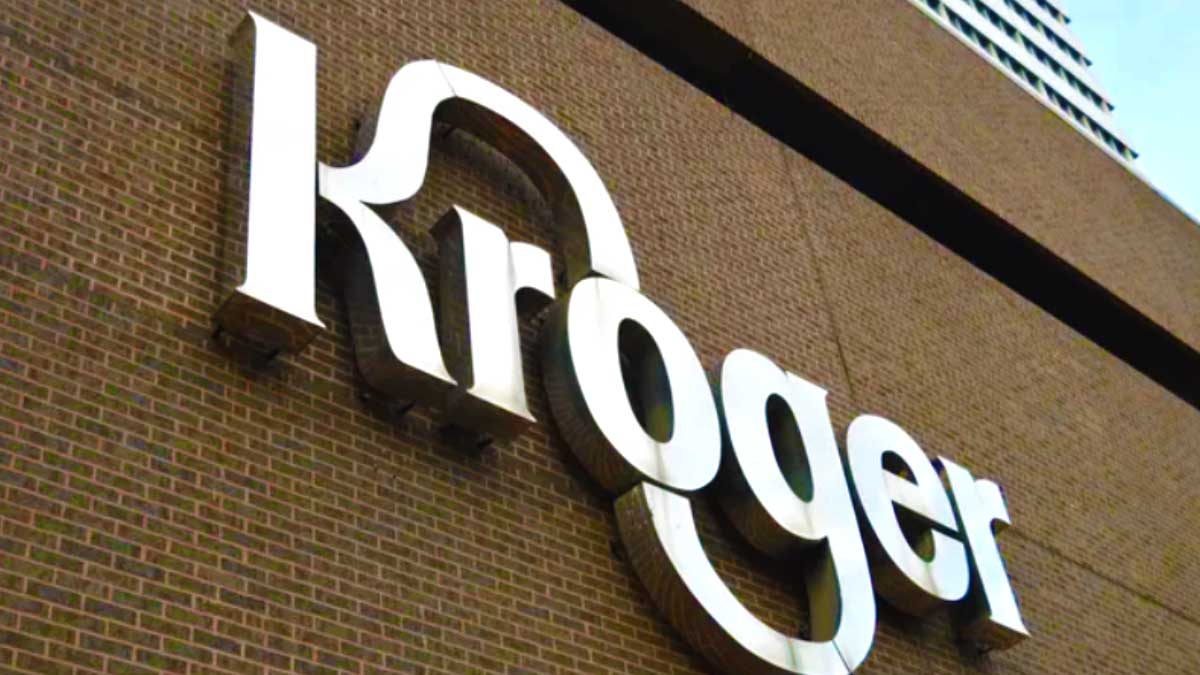- Home
- Billionaires
- Investing Newsletters
- 193CC 1000
- Article Layout 2
- Article Layout 3
- Article Layout 4
- Article Layout 5
- Article Layout 6
- Article Layout 7
- Article Layout 8
- Article Layout 9
- Article Layout 10
- Article Layout 11
- Article Layout 12
- Article Layout 13
- Article Layout 14
- Article Sidebar
- Post Format
- pages
- Archive Layouts
- Post Gallery
- Post Video Background
- Post Review
- Sponsored Post
- Leadership
- Business
- Money
- Small Business
- Innovation
- Shop
Recent Posts
Albertsons Sues Kroger After $25B Merger Collapse

Albertsons has officially terminated its nearly $25 billion merger agreement with Kroger following a federal judge’s decision to block the deal. The grocery chain filed a lawsuit in the Delaware Court of Chancery shortly after the termination, accusing Kroger of breaching the merger agreement. Albertsons claims that Kroger failed to secure regulatory approval for the deal, a responsibility outlined in their contract. The lawsuit alleges Kroger willfully violated the terms of the agreement by not taking the necessary steps to address antitrust concerns, including refusing to divest assets and disregarding feedback from regulators.
The legal challenge stems from a preliminary injunction issued by U.S. District Judge Adrienne Nelson, who sided with the Federal Trade Commission (FTC) in its efforts to block the merger. Judge Nelson’s ruling highlighted the significant competition between Albertsons and Kroger, noting that their merger would eliminate this rivalry and harm market competition. Kroger’s attempt to sell 579 stores to C&S Wholesale Grocers as a remedy for antitrust concerns was deemed insufficient by the court, as it failed to demonstrate that such divestitures would preserve competition effectively.
Albertsons has accused Kroger of not cooperating adequately to meet antitrust requirements. The company claims that Kroger rejected potential buyers for divested assets and failed to act in good faith to resolve regulatory objections. As a result, Albertsons is seeking $600 million in termination fees along with billions of dollars in damages to compensate for the financial impact of the scrapped deal. Albertsons stated that the merger would have enhanced competition, lowered prices, and benefited employees, but these arguments were not enough to sway the court.
The FTC’s opposition to the merger has centered on concerns about reduced choices and higher food prices for consumers. Regulators argued that the competition between Albertsons and Kroger has historically kept prices low and wages competitive. The deal, first announced in 2022, proposed Kroger’s acquisition of all Albertsons shares for approximately $34.10 per share. Kroger also pledged a $1 billion investment in employee wages and benefits as part of the merger plan. However, these promises were overshadowed by antitrust concerns, which ultimately led to the deal’s downfall.
The ruling has sparked mixed reactions from the companies involved. Albertsons expressed disappointment with the decision, stating that it had clearly outlined how the merger would benefit consumers and employees alike. Kroger, on the other hand, criticized the court for allegedly overlooking key evidence supporting the merger. Both companies have announced plans to review their options following the ruling, though the likelihood of salvaging the deal appears slim given the regulatory challenges.
Financial markets reflected the uncertainty surrounding the merger’s future. Kroger’s stock saw a slight increase after the court ruling, while Albertsons’ shares experienced a decline before recovering modestly. The legal and financial fallout has highlighted the complexities of pursuing large-scale mergers in heavily regulated industries like grocery retail.
This case also underscores the FTC’s commitment to strict antitrust enforcement under its current leadership. The agency’s efforts to block the Kroger-Albertsons merger signal a broader push to prevent corporate consolidation that could harm consumers and workers. For now, Albertsons is pressing forward with its lawsuit against Kroger, seeking accountability for what it perceives as a failure to honor contractual obligations. The dispute is poised to shape future discussions about mergers and acquisitions in the grocery industry and beyond.
Recent Posts
Categories
- 193 Countries Consortium Partner1
- 193cc Digital Assets2
- 5G1
- Aerospace & Defense48
- AI37
- Arts3
- Banking & Insurance11
- Big Data3
- Billionaires1,261
- Boats & Planes1
- Business332
- Careers13
- Cars & Bikes79
- CEO Network1
- CFO Network17
- CHRO Network1
- CIO Network1
- Cloud10
- CMO Network18
- Commercial Real Estate7
- Consultant1
- Consumer Tech194
- CxO1
- Cybersecurity73
- Dining1
- Diversity, Equity & Inclusion4
- Education7
- Energy8
- Enterprise Tech29
- Events11
- Fintech1
- Food & Drink2
- Franchises1
- Freelance1
- Future Of Work2
- Games149
- GIG1
- Healthcare79
- Hollywood & Entertainment203
- Houses1
- India’s 1000 Richest1
- Innovation46
- Investing2
- Investing Newsletters4
- Leadership65
- Lifestyle11
- Manufacturing1
- Markets20
- Media327
- Mobile phone1
- Money13
- Personal Finance2
- Policy569
- Real Estate1
- Research6
- Retail1
- Retirement1
- Small Business1
- SportsMoney42
- Style & Beauty1
- Success Income1
- Taxes2
- Travel10
- Uncategorized13
- Vices1
- Watches & Jewelry2
- world's billionaires1,230
- Worlds Richest Self-Made Women2
Related Articles
HBO and Cablevision Founder Charles Dolan Dies at 98
Charles Dolan, the visionary founder of HBO and Cablevision, passed away at...
By 193cc Agency CouncilDecember 30, 2024Bitcoin Reaches $100K, But Altcoins Outperform in 2024
Bitcoin’s performance in 2024 was nothing short of historic, as it crossed...
By 193cc Agency CouncilDecember 28, 2024Apple Unveils Limited-Edition Year of the Snake AirTag in Japan
In an announcement that will likely leave Apple enthusiasts excited but also...
By 193cc Agency CouncilDecember 27, 2024Mega Millions Jackpot Hits $1.15B; Winner Faces Major Taxes
The Mega Millions jackpot has soared to an estimated $1.15 billion, following...
By 193cc Agency CouncilDecember 26, 2024















Leave a comment